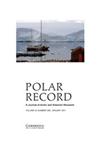在斯瓦尔巴群岛的导游中,就环境、可持续性和大众旅游之间的权衡进行谈判
IF 1.6
4区 环境科学与生态学
Q3 ECOLOGY
引用次数: 4
摘要
摘要本文探讨了斯瓦尔巴群岛的导游在从事大众旅游时如何理解他们与环境的关系。北极的升温速度比世界上任何其他地区都快,在过去的30年里,气候变化的影响对北极的环境产生了巨大影响。导游们发现自己生活在一个悖论中,他们的工作破坏了他们所关心和依赖的自然。本文分析了斯瓦尔巴群岛导游在四个月的实地调查中收集的经验数据。在整个论文中,探讨了两个维度:导游与环境的关系和理解,以及他们关心环境的方式。在导游对环境的先入为主的概念的基础上,展示了导游在日常生活中是如何参与环保实践的。这些做法植根于指南与环境的互惠关系中,在不同的权衡之间进行谈判。因此,导游们通过与环境的亲密关系,找到了一种方法来应对保护环境和旅游业工作的复杂性。本文章由计算机程序翻译,如有差异,请以英文原文为准。
Negotiating trade-offs between the environment, sustainability and mass tourism amongst guides on Svalbard
Abstract This paper investigates how guides on Svalbard make sense of their relations to the environment whilst working with mass tourism. The Arctic is heating up more rapidly than any other part of the world, and over the last 30 years the effect of climate change has had a large impact on the environment in the Arctic. The guides as such find themselves living a paradox where their work destroys the nature that they care about and depend on. This paper analyses empirical data collected during four months of fieldwork amongst guides in Svalbard. Throughout the paper, two dimensions are explored: the guides’ relation to and understanding of the environment as well as their ways of caring for it. Building on illustrations of the guides’ preconceptions of the environment, it is shown how the guides in their everyday life are engaged in pro-environmental practices. These practices are embedded in the guides’ reciprocal relationship with the environment, where they negotiate between different trade-offs. The guides thus find a way to navigate the complexity of caring for the environment and working in tourism through their intimate relation to the environment.
求助全文
通过发布文献求助,成功后即可免费获取论文全文。
去求助
来源期刊

Polar Record
环境科学-环境科学
CiteScore
1.40
自引率
25.00%
发文量
26
审稿时长
>36 weeks
期刊介绍:
Polar Record is an international, peer-reviewed scholarly periodical publishing results from a wide range of polar research areas. The journal covers original primary research papers in the humanities, social sciences, physical sciences, life sciences, and polar technology, as well as papers concerning current political, economic, legal, and environmental issues in the Arctic or Antarctic. Polar Record endeavours to provide rapid publication, normally within nine months of initial submission.
 求助内容:
求助内容: 应助结果提醒方式:
应助结果提醒方式:


